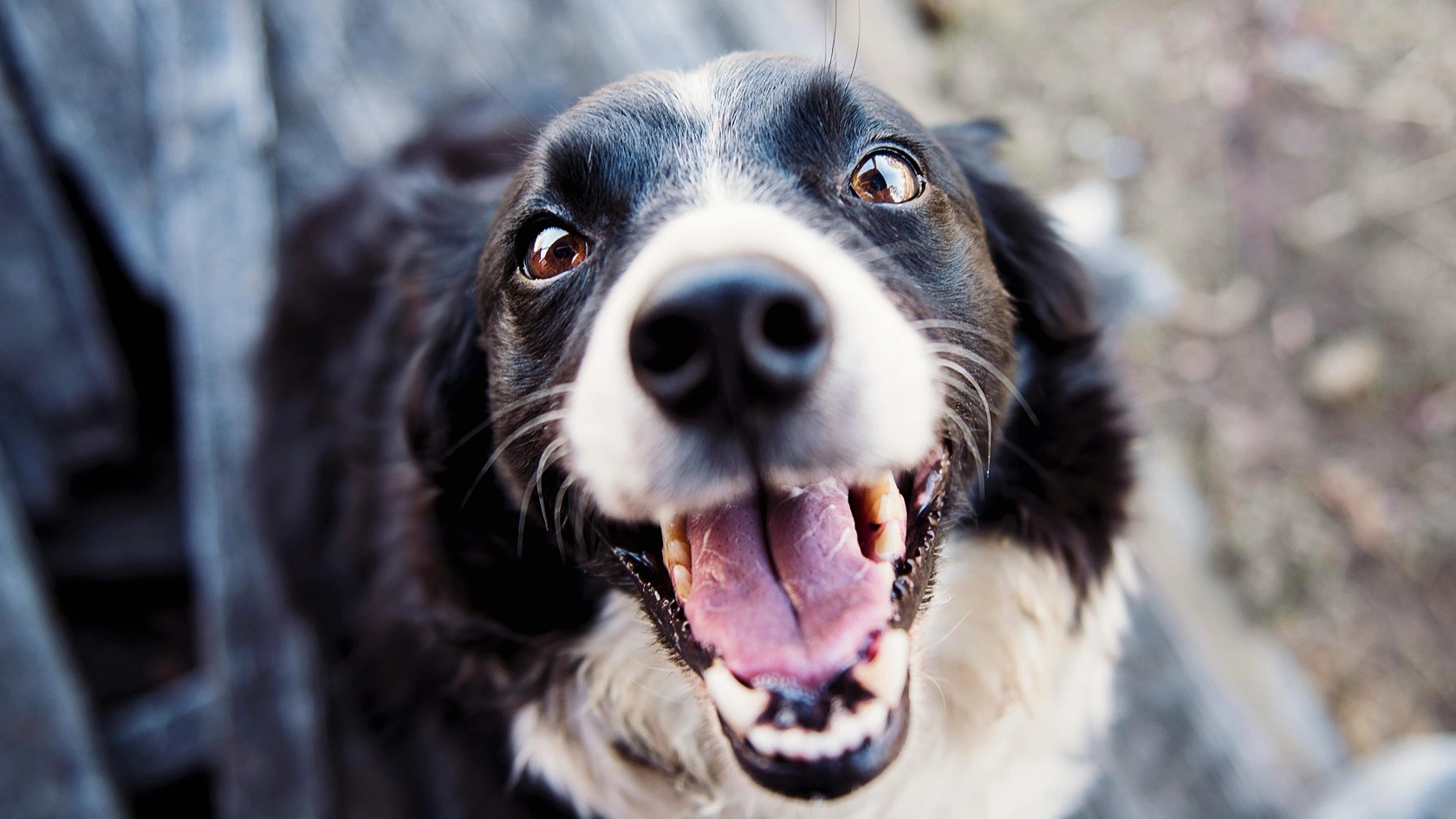TL;DR — How to Clean Your Dog’s Teeth: Dog Dental Care Tips for a Healthy Smile
- Cleaning your dog’s teeth is essential for healthy gums, strong teeth, and fresh breath.
- Daily brushing, dog dental chews, and treats help remove plaque and tartar that can lead to dental problems.
- Even with home care, some dogs may need professional dental cleaning from a vet.
- Watching for signs of bad breath, loose teeth, or gum problems helps dog owners act early.
- Supervising brushing and making dental care a positive routine ensures dogs can clean their teeth effectively.
- Regular veterinary visits support long-term dental health and keep your dog’s mouth clean.
If you think your dog needs a dental check or extra care for their teeth, get in touch with our team. We’re here to help keep your dog’s smile healthy and strong.
Have you ever noticed your dog’s breath and wondered if their teeth are really healthy? Brushing with dog toothpaste, using dental chews, and keeping up with vet visits can make a big difference. Without proper care, dogs may develop plaque, tartar, or gum disease, which can affect more than just their mouth.
Keeping your dog’s teeth clean doesn’t have to be complicated. A dog toothbrush, dental treats, or even dog dental wipes can help maintain strong teeth and healthy gums. Getting your dog’s teeth brushed regularly helps prevent dental problems and keeps their mouth fresh and clean.
Caring for your dog’s teeth—from daily brushing to professional dental cleaning—supports their overall health. Rewarding your dog and making brushing a calm, consistent routine make it easier for both of you. Read on to learn simple, effective ways to clean your dog’s teeth and keep their smile bright.
The Importance of Regular Dog Dental Care
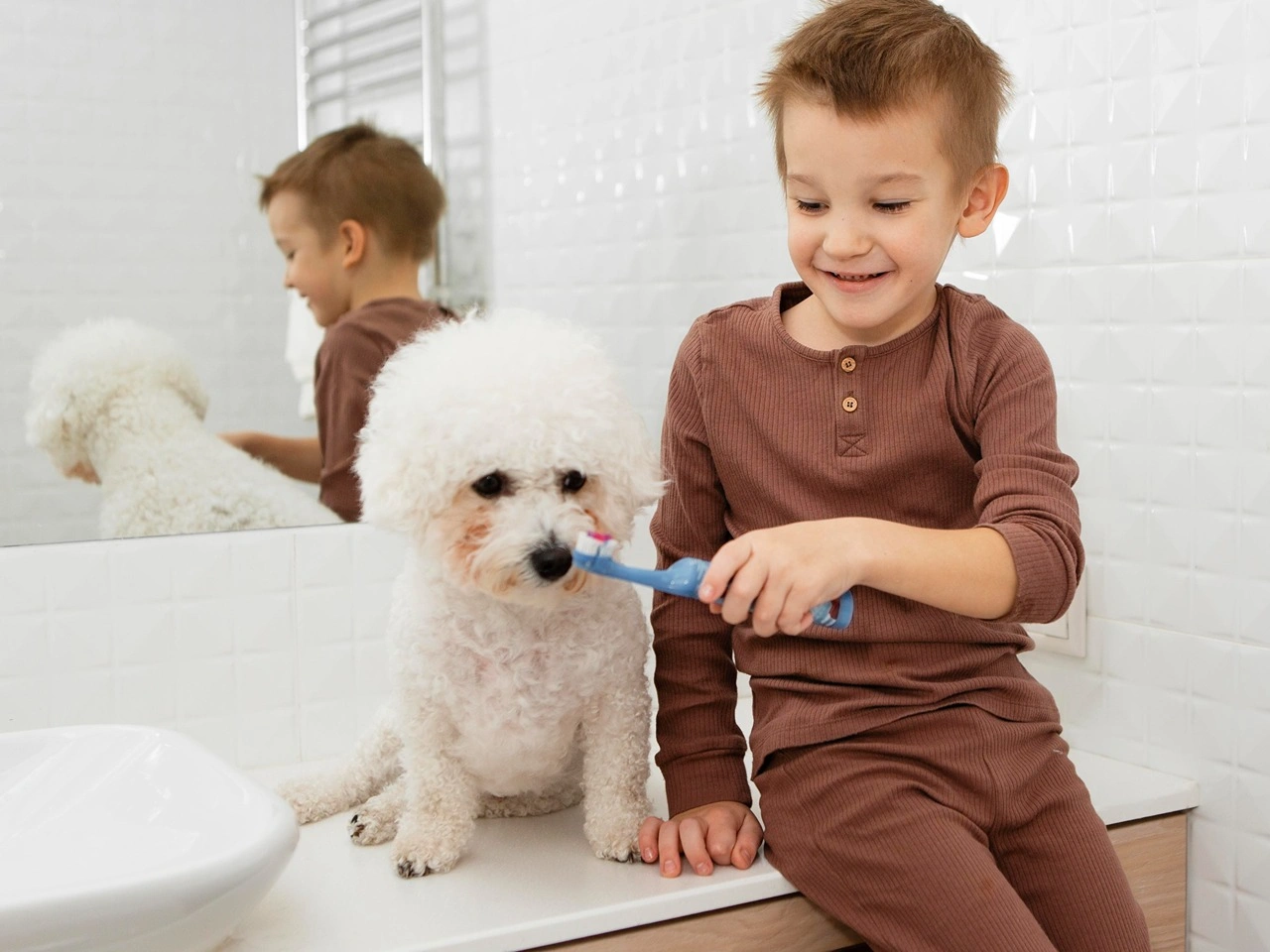
Keeping your dog’s teeth and gums healthy is a key part of responsible dog ownership. Keeping up with your dog’s dental health is important for their overall well-being and helps keep their mouth clean. Knowing why it matters can motivate you to take simple, proactive steps to protect your dog's teeth and gums.
Why Dog Dental Care Matters
Neglecting your pet’s teeth can lead to plaque and tartar buildup, gum disease, and loose teeth. Dogs may also develop infections that affect their overall health if their teeth aren’t cleaned regularly. Getting your dog’s teeth brushed consistently keeps their teeth and gums strong and helps prevent dental problems before they become serious.
Common Dental Problems in Dogs
- Plaque and Tartar: Hardened buildup that can irritate gums and affect your dog’s oral health.
- Gum Disease: Inflammation of the gums that can lead to loose teeth and discomfort.
- Bad Breath: Often a sign that your dog’s teeth need cleaning.
- Tooth Loss: Neglecting professional cleaning or daily brushing may result in missing teeth.
How Regular Care Helps
Brushing your dog’s teeth daily, using dog dental cleaning products, and giving dog chews are great ways to clean teeth and help clean back teeth. Professional dental cleaning is the best way to thoroughly clean your dog’s mouth and prevent dental disease. Caring for your dog's teeth consistently ensures your pet stays healthy, happy, and their mouth is clean.
How to Brush Your Dog’s Teeth for a Healthy Smile
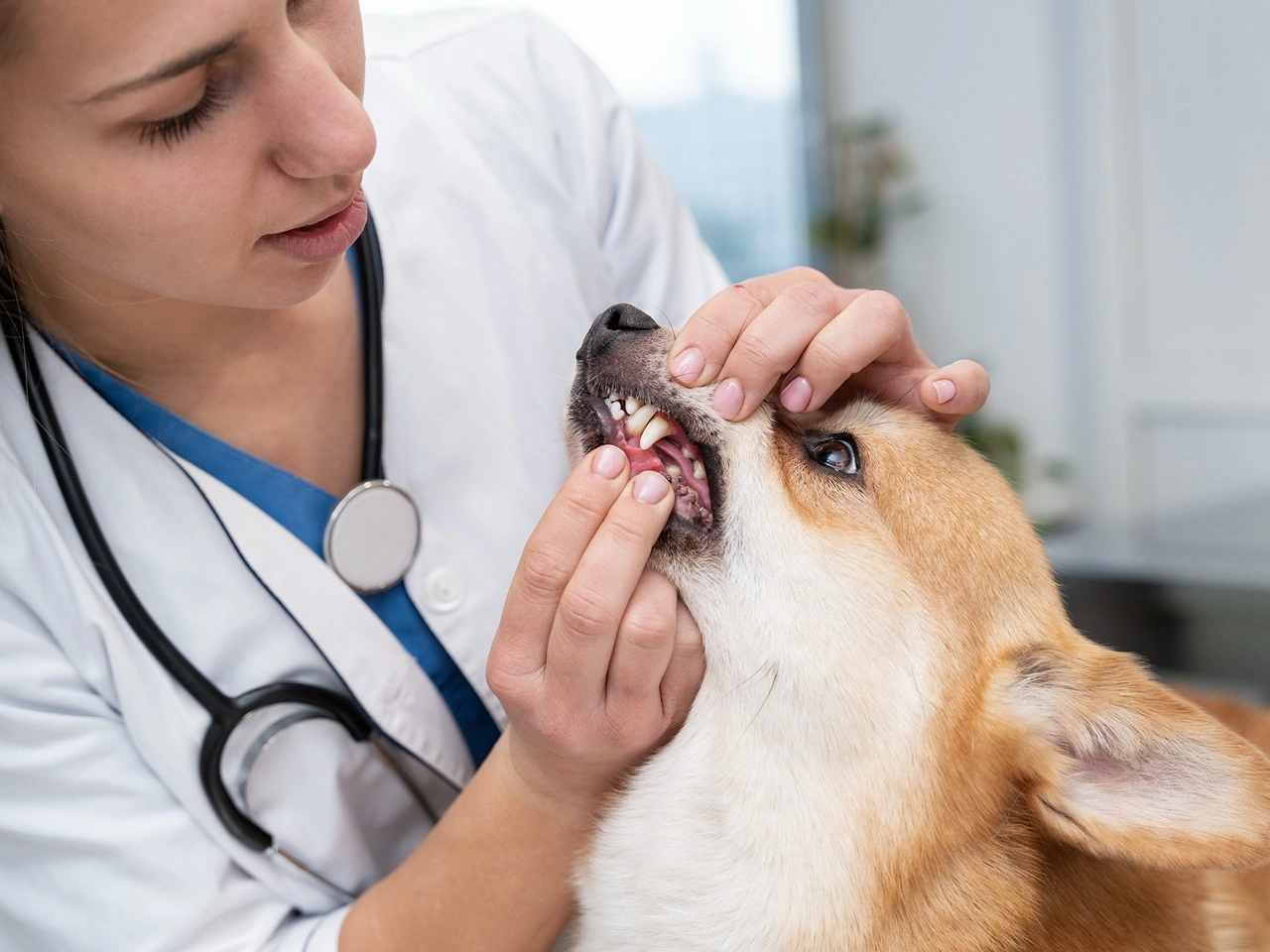
Brushing your dog’s teeth is one of the best ways to keep their mouth healthy. Doing it regularly helps prevent plaque, tartar, and gum problems. With the right technique, you can even make brushing a stress-free and positive experience for your dog.
Choosing the Right Tools
The right tools make brushing easier for both you and your dog.
- Dog toothbrush: Designed to reach every tooth, including back teeth where plaque collects.
- Dog toothpaste: Safe for dogs and available in flavours they enjoy.
- Dog dental wipes: Useful for dogs who are not yet comfortable with a toothbrush.
Step-by-Step Guide to Brushing Your Dog’s Teeth
- Start slowly: Let your dog sniff the toothbrush and taste the dog toothpaste.
- Brush gently: Lift their lips and brush in small circular motions to clean teeth thoroughly.
- Don’t forget the back teeth: Plaque and tartar usually accumulate there.
- Keep sessions short: Begin with brief sessions while the dog is relaxed, gradually increasing time.
Tips for a Positive Experience
- Reward your dog: Give your dog a treat after brushing to encourage cooperation.
- Supervise and guide: Follow a guide to brushing your dog’s teeth to ensure proper care.
- Brush teeth regularly: Consistent brushing helps prevent dental problems and keeps your dog’s mouth clean.
The Surprising Benefits of Proper Dog Dental Care
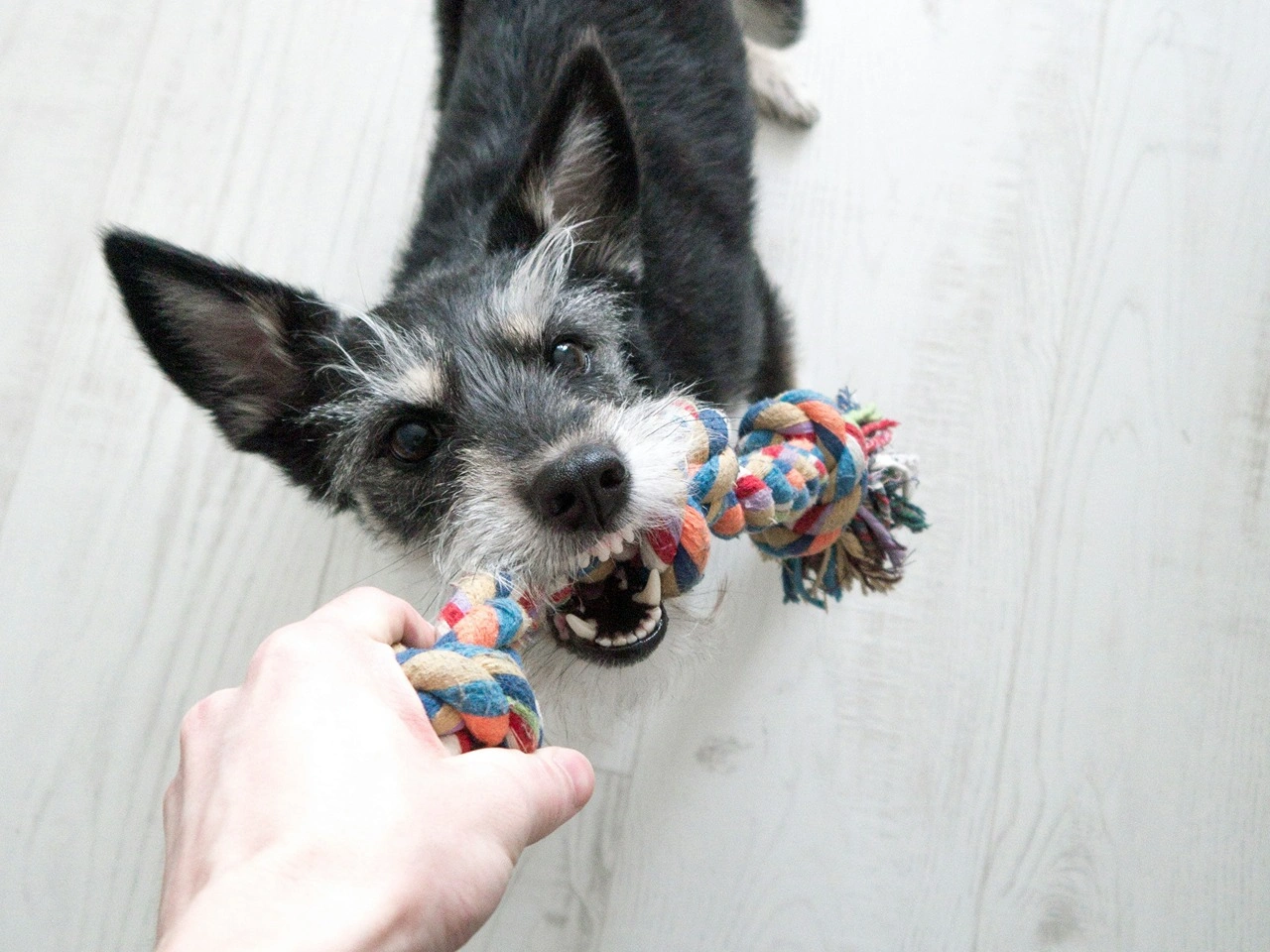
Proper dog dental care does more than freshen your dog’s breath. Helping your dog get their teeth brushed regularly and caring for your pet’s teeth daily support overall oral health and prevent dental problems. Dog owners who take time to clean their dog’s teeth help keep their pet’s mouth clean and healthy.
1. Healthier Teeth and Gums
Brushing your dog’s teeth and giving it dental chews helps prevent plaque and tartar buildup. This keeps teeth strong, gums healthy, and reduces the risk of loose teeth or painful infections.
2. Fresher Breath
Routine dental care helps freshen your dog’s breath naturally. Dogs that don’t get their teeth cleaned frequently show indications of canine bad breath, which proper brushing and dental treats can prevent.
3. Prevention of Dental Disease
Regular dental care helps keep gum disease, infections, and other dental problems at bay. Brushing and cleaning your dog’s teeth consistently not only supports their overall health but can also reduce the need for extra trips to the vet.
4. Easier Veterinary Visits
Dogs accustomed to having their teeth brushed are more relaxed during visits to the dentist or veterinarian. Clean teeth mean fewer complications and make professional dental cleaning easier when needed.
5. Improved Overall Well-Being
Caring for your dog's teeth daily allows them to eat comfortably, chew safely, and stay active. Maintaining oral health is one of the best ways for dog owners to help their pets live long, happy, and healthy lives.
Choosing the Right Dog Dental Treats and Chews
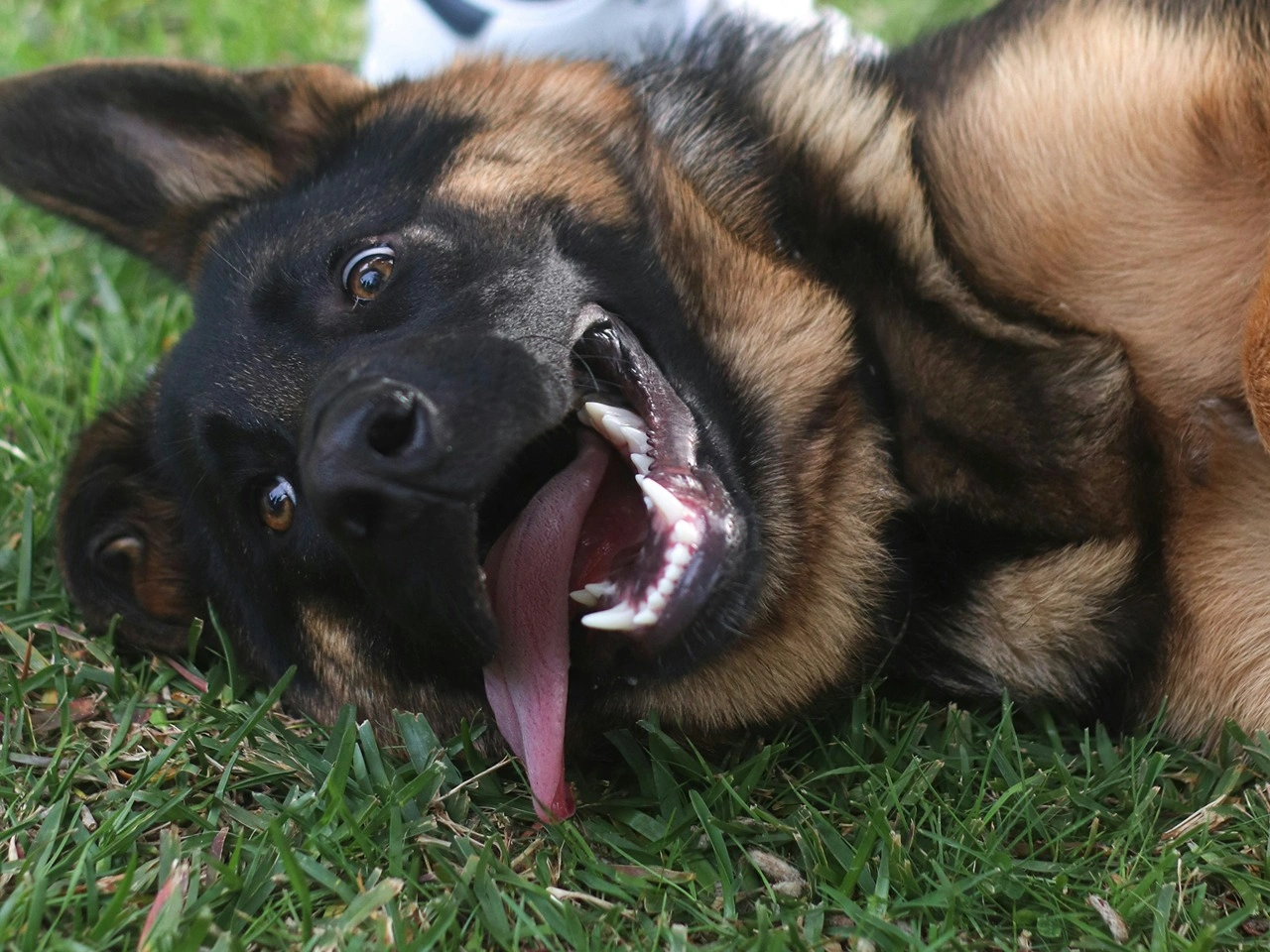
Dental chews and treats are an effective way to help clean your pet’s teeth and support daily oral health. Dog owners can use these products to complement brushing and keep their dog’s mouth clean. Choosing chews that are the best for your dog ensures they enjoy them while staying healthy.
1. Dog Chews for Cleaning Teeth
Dog chews help remove plaque and tartar while your dog enjoys a treat. Giving your dog dental chews regularly supports healthy teeth and gums and helps prevent dental problems.
2. Dental Treats That Support Oral Health
Dental treats help clean teeth and freshen your dog’s breath. Dogs that don’t get their teeth brushed daily can benefit from these treats as an extra way to help clean teeth.
3. Combining Chews and Brushing
Chews are helpful, but brushing teeth is still necessary. Dog owners should brush their teeth regularly and supervise chewing to ensure thorough cleaning.
4. Tips for Choosing the Right Chews
Start cleaning gradually if your dog is not used to chews, and reward your dog for cooperating. Showing your dog that dental treats are part of their routine helps make oral care easier and more effective.
When to Seek Professional Dental Cleaning from a Vet
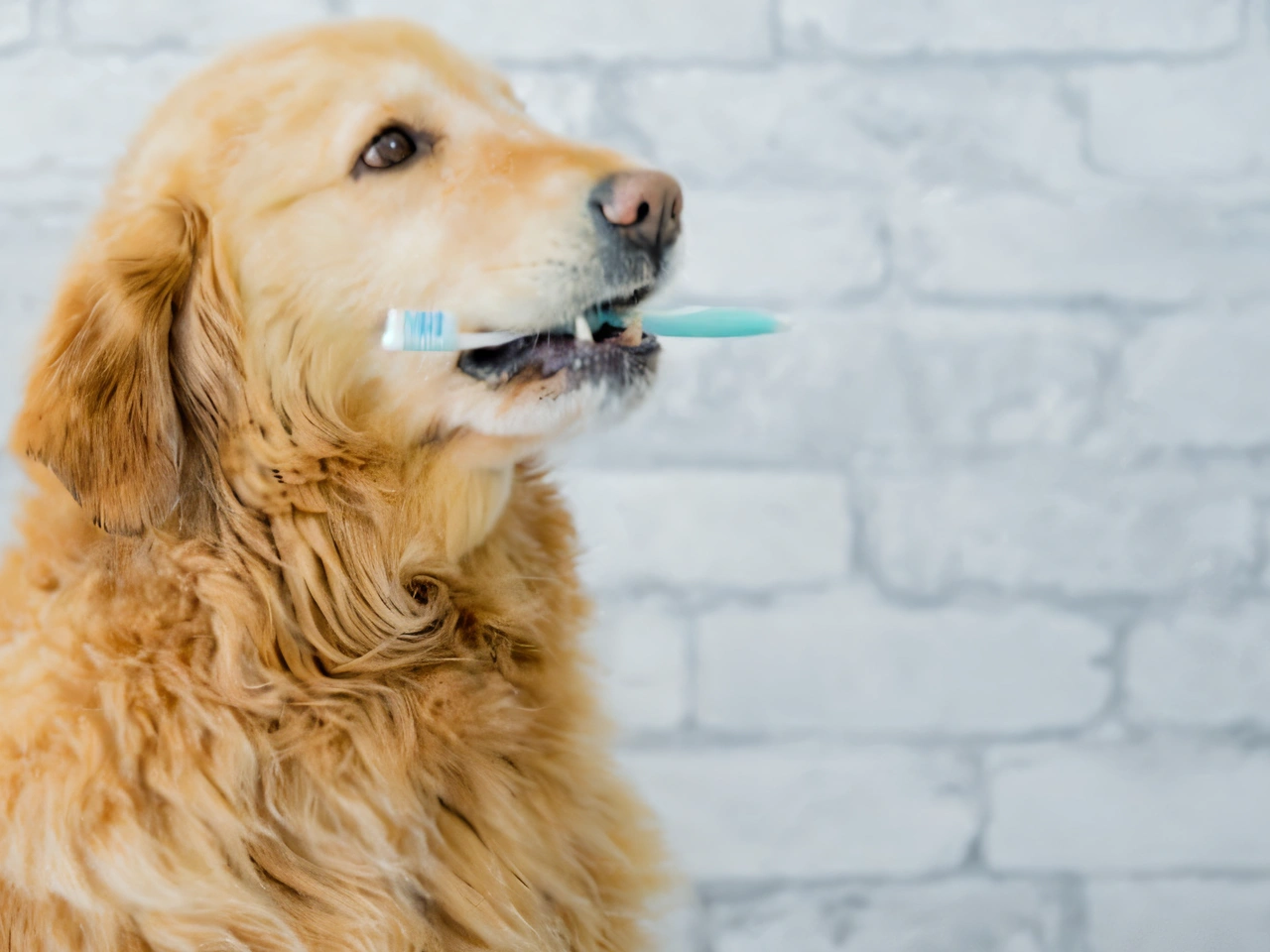
Even if you clean your dog’s teeth daily, some dogs need a dentist to thoroughly care for their teeth. As a dog owner, you should know the signs that indicate it’s time to get your dog a professional dental cleaning. Recognizing these signs early can prevent your dog from developing serious dental problems.
Signs Your Dog May Need Professional Cleaning
Dogs may show signs of canine dental issues that require attention:
- Dogs don’t seem to enjoy chewing or playing with toys
- Persistent bad breath despite regular brushing
- Visible plaque or tartar buildup
- Red, swollen, or bleeding gums
- Loose or damaged teeth
Preparing Your Dog for Professional Cleaning
Dog owners can make professional dental visits easier by:
- Start cleaning at home to help your dog get used to their mouth being handled
- Supervising your dog while brushing and using dental chews
- Taking your dog for regular veterinary checkups to monitor their oral health
- Showing your dog calm and consistent care to reduce stress during professional cleaning
Dog Teeth Cleaning Tips for a Healthy Mouth
Keeping your dog’s teeth and gums healthy doesn’t have to be complicated. With a few simple steps and consistent care, dog owners can help their pets avoid dental problems and enjoy a clean, comfortable mouth. Small, regular habits can make a big difference in your dog’s overall oral health.
1. Start Cleaning Gradually
If your dog isn’t used to brushing, take it slow. Let them sniff the toothbrush or dog dental wipes and taste the dog toothpaste first. Gradually helping your dog get used to the process makes brushing a calm and positive experience.
2. Brush Their Teeth Regularly
Try to brush your dog’s teeth daily, or at least several times a week. Lift the lips and brush gently in small circular motions, paying attention to back teeth where plaque and tartar often build up. Supervising your dog ensures each tooth gets cleaned properly.
3. Use Dog Dental Chews and Treats
Dental chews and treats are a great way to help clean teeth between brushing. Giving your dog these treats helps remove plaque naturally and keeps their mouth fresh and healthy.
4. Watch for Signs of Dental Problems
Dogs may show symptoms of canine dental issues, like bad breath, red or swollen gums, or difficulty chewing. Detecting these early can help you get your dog professional attention before problems become worse.
5. Keep Up with Veterinary Visits
Even with routine brushing and chews, professional teeth cleaning is still needed sometimes. Taking your dog to the dentist helps clean teeth meticulously and prevents possible dental issues from developing.
6. Make Oral Care Positive and Rewarding
Reward your dog after brushing or using dental treats to make the routine enjoyable. Showing your dog that dental care is part of their daily life helps supervise your dog more easily and keeps their teeth healthy.
Final Thoughts
Caring for your dog’s teeth is an essential part of keeping them healthy and happy. Regular brushing, dental chews, and treats all help clean their teeth and maintain strong gums. Even dogs that get daily home care may sometimes need professional dental cleaning from a vet.
Watching for signs of plaque, tartar, or bad breath can help prevent serious dental problems. Making oral care a positive routine and supervising your dog while brushing ensures they can clean their teeth effectively.
If you have questions about how to clean their teeth or need professional cleaning, contact us, and our team will be happy to help keep your dog’s smile bright and healthy.
Frequently Asked Questions
How often should I use dog toothpaste for effective tooth brushing?
Using dog toothpaste regularly is one of the most important ways to keep your dog’s teeth and gums healthy.
Daily brushing: Brushing your dog’s teeth every day is the most effective way to remove plaque and prevent tartar buildup.
A few times a week: If daily brushing isn’t possible, cleaning their teeth several times a week still helps maintain good oral health.
Back teeth attention: Make sure to reach the back teeth, where plaque and tartar tend to accumulate the most.
Supervise your dog: Keeping your dog calm and cooperative ensures each tooth gets cleaned thoroughly.
Positive routine: Rewarding your dog after brushing encourages them to enjoy the process and makes it easier to brush regularly.
Can dog dental chews help prevent gum disease and other dental problems in my dog?
Dog dental chews are a simple and tasty way to help clean your dog's teeth and support their overall oral and dental health.
Plaque reduction: Chews help remove plaque and tartar naturally while your dog enjoys a treat.
Gum support: Regular use can help maintain healthy gums and reduce the risk of gum disease.
Freshen breath: Chews also help freshen your dog’s breath and keep their mouth feeling clean.
Complement brushing: While chews are helpful, they should be used alongside regular brushing for the best results.
Choose the right chews: Pick dental chews that are safe, appropriate for your dog’s size, and best for your dog’s oral health.
What signs of bad breath indicate that my dog may have dental disease?
Persistent bad breath can be an early sign that your dog is experiencing dental problems.
Plaque and tartar: Visible yellow or brown buildup on teeth is a warning that your dog may need extra dental care.
Red or bleeding gums: Swollen or bleeding gums indicate possible gum disease or irritation.
Loose teeth: Teeth that wobble or fall out should be checked by a vet immediately.
Difficulty chewing: Dogs may avoid chewing toys or food if their teeth hurt.
Unusual behaviour: Dogs showing discomfort, pawing at their mouth, or being irritable may have oral health issues that need attention.
Are dog dental wipes a good alternative to traditional tooth brushing?
Dental wipes can be a convenient way to clean your dog’s teeth, especially for dogs who resist a toothbrush.
Plaque control: Wipes help remove surface plaque and lessen tartar buildup when done regularly.
Gum care: Gently wiping supports healthy gums and can reduce inflammation.
Convenience: Dental wipes are quick and easy to use, making them a great tool for busy dog owners.
Complement brushing: Wipes can help clean teeth, but they should not completely replace proper brushing.
Positive experience: Reward your dog after using dental wipes to make the process calm and enjoyable.
When should I get my dog checked by a veterinary professional for dental issues?
Some dental problems require professional care even if you clean your dog’s teeth at home regularly.
Persistent bad breath: Chronic foul breath can indicate dental disease and should be evaluated by a vet.
Plaque and tartar buildup: When your dog has significant plaque or tartar that they can’t clean off on their own, it’s time for a vet visit.
Red, swollen, or bleeding gums: These are warning signs of gum disease and should be checked by a professional.
Loose or damaged teeth: If your dog has a loose or broken tooth, getting veterinary care quickly can help prevent pain and more serious dental problems.
Routine checkups: Regular dental exams and professional cleaning help prevent serious issues and maintain strong teeth and gums for long-term health.

